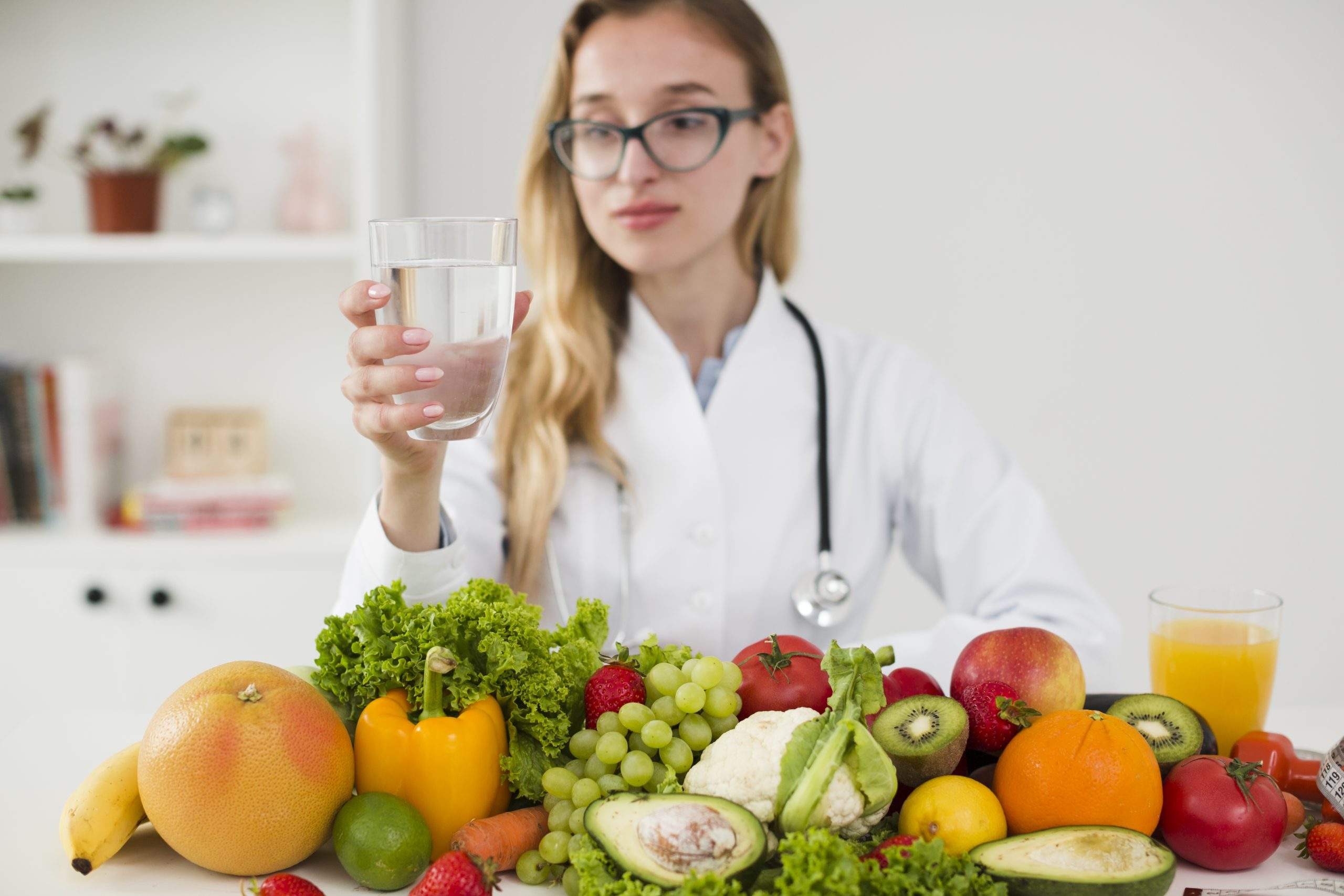Cancer and its therapies can have an impact on your appetite and how your body utilises nutrients from meals. This is why it’s critical to provide your body with enough calories as well as the correct balance of nutrients to keep you robust throughout treatment.
Your body needs energy to fight the disease. Chemotherapy, radiation and other cancer treatments take a toll on your body, too. As a result, you may lose weight – and in this case, that’s not a good thing.
“When your body suffers tissue damage, whether from cancer or treatment, it works hard to repair itself. It uses the nutrients from your food, particularly protein, for this. Your body will use up energy and protein if you don’t consume enough. Then you will realise that you are becoming more weary and that your muscles are becoming weaker. This can put you at risk for malnutrition
What makes for a good cancer diet?
The best diet for you will depend on a number of factors. Those include the location of the cancer you’re fighting, your treatments and the side affects you experience.
Certain aspects of a healthy diet, however, remain consistent.
Fruits, vegetables, beans, nuts, seeds, meats like poultry and fish, and enough water are good. These foods have been proven in studies to promote and maintain healthy health. Avoid sugary drinks and processed meals with added sugar and fat. The less we mess about with food, the better.
The more whole foods you eat, the better nutrition you get.
Maintaining your weight, staying hydrated, and controlling your symptoms are all important throughout cancer treatment.
Your treatment’s adverse effects may have an impact on this.
Based on the adverse effects, you may need to adjust what and how you consume. Nutrition may be used to control symptoms in a variety of ways.
A dietician can counsel and teach you these during treatment so you can optimize what you are eating and drinking to meet your nutrition needs.
Chemotherapy side effects might make you feel queasy, cause appetite loss or change, and even cause meals to taste different. Some meals you used to enjoy may now make you sick.
Radiation therapy, especially to the head, neck and centre of the chest, can cause pain and difficulty chewing and swallowing solid foods.
Are there foods that fight cancer?
Fruits, vegetables, beans, nuts, seeds, and whole grains are all natural cancer fighters. According to research, consuming a variety of plant-based meals is associated with a decreased risk of cancer.
Plants generate phytochemicals, which offer several advantages. They have anti-inflammatory properties, can protect cells from harm, and can prevent cancer from growing.
There are additional suggestions as to why persons who consume more plant-based meals have a lower risk of cancer.
Fibre, which is higher in plant foods, may help prevent cancer. Several studies have shown higher fibre diets are linked to lower risk of breast cancer and colorectal cancer.
The association between a plant-based diet and a decreased risk of cancer might, of course, be attributable to weight. Plant-based eaters consume fewer calories and are less likely to be overweight, which is a risk factor for numerous forms of cancer. https://www.nsaero.com/buy-generic-tramadol-online/
Foods to add to your diet before cancer treatment
Protein: Prior to starting your treatment, It is recommended to add enough protein in your diet to prevent sarcopenia, or muscle loss, which can occur as a result of cancer and cancer treatment.
Good sources of protein include:
- Beans
- Chicken
- Cottage cheese
- Eggs
- Lentils
- Seafood
- Yogurt
Omega-3 fatty acids: Studies shows that omega-3 fatty acids, especially from fish, flaxseed and walnuts, may help to lessen muscle loss.
Cruciferous vegetables: Cruciferous vegetables — which include broccoli, cauliflower, kale, cabbage — have long been known to hedge against cancer and cancer recurrence.
Antioxidant-rich fruits and vegetables: It is suggested to add antioxidant-rich, colourful fruits and vegetables to your diet, such as blueberries, blackberries, eggplant, red peppers, papaya, plums and watermelon.
These antioxidant-rich foods appear to offer anti-cancer and anti-inflammatory capabilities. ‘Eat the rainbow’ is a good approach to remind yourself to include these items in your diet.
Foods to add to your diet during cancer treatment
Although your nutrition plan may vary based on factors such as the type of cancer treatment you receive and your health at the time of diagnosis, there are key nutrition goals to aim for during cancer treatment.
Maintaining your weight and understanding your diet tolerance — how much and what sorts of food you can consume comfortably — are critical dietary goals throughout cancer treatment.
Calorie and protein requirements often rise during therapy, therefore eating nutrient-dense meals is essential. Consume items high in calories and/or protein but low in volume, such as avocados, peanut or almond butter, and honey.
These are some further examples of nutrient-dense foods:
- Bananas
- Lentils
- Oatmeal
- Olive oil
- Salmon
- Sweet potatoes
- Whole eggs
- Yogurt (whole milk is preferable)
Mealtime tips for dealing with cancer treatment side effects
- Cancer and its therapies can have a variety of effects on your eating and drinking habits, including lack of appetite, changes in taste or smell, nausea, and vomiting.
- Cancer treatments, other drugs, and even stress can cause appetite loss.
- Treatments like radiation therapy may cause a temporary loss of taste, while chemotherapy can make foods taste different.
- Another potential adverse effect of cancer therapy is a reduction in your appetite. Food is a crucial component of one’s quality of life, but it’s beneficial to think of it as another part of one’s healing routine throughout cancer treatment.
Foods to avoid while undergoing cancer treatment
- Treatments for cancer can have an impact on your immune system and your body’s capacity to fight infections. It is critical that you exercise caution and avoid ingesting food that may be contaminated with germs.
- Good food safety practises are essential during cancer treatment. Don’t leave anything to chance.
- Wash all fruits and vegetables, including prewashed lettuce and veggies. Consume only fully cooked meat, poultry, fish, and eggs. I also advise you to avoid any deli meats and undercooked hot dogs, which can expose you to Listeria, a kind of bacterium common in such meals. Stay away from unpasteurized milk products and beverages.
By
Reshma Daki
Dietician
Mahatma Gandhi Cancer Hospital & Research Institute







